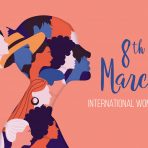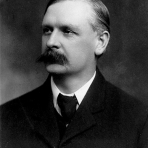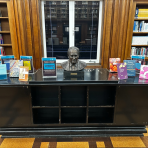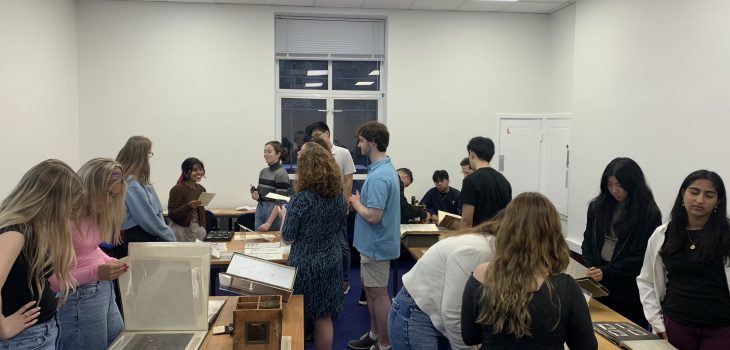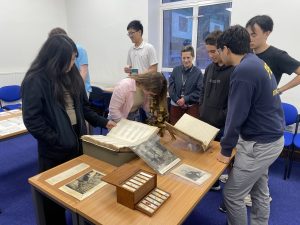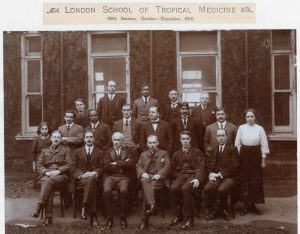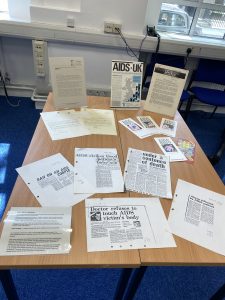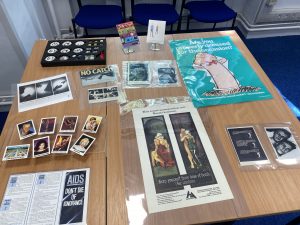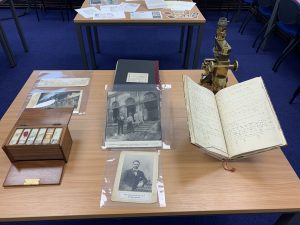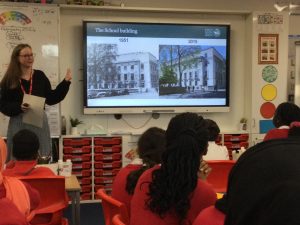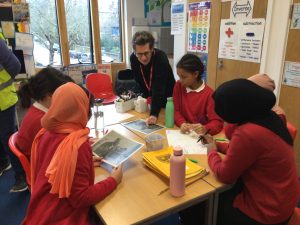It has been a busy year for the Archives Service and we thought that it would be good to reflect on what we have achieved and more importantly what we have learnt through our decolonising practice.
We have run Decolonising the Archives sessions for internal and external student groups from institutions including the University of Florida, King’s College, UCL, Westminster and Birkbeck. We are constantly reviewing and updating these sessions in accordance with our Decolonising Principles and enjoy learning from the students interactions with our archive collections.
Each member of the team discusses one of the sessions that we ran, what we enjoyed and what we took away from the session.
University of Florida students – Victoria
In May we welcomed students from the University of Florida’s writing programme who were studying the history of health disparities in the UK. This was a joint session with the Centre for History in Public Health. Janet Weston gave a lecture on the history of public health. Then we introduced students to the archive collections, using our Decolonising Principles as a focus.
Students were then given time to look at the collections. One group were very interested in the staff and student photograph album, they spotted many cats that we have not seen before in these photos. We discussed how the School employed young girls to work in the laboratories during the First World War. They were also interested in knowing if we had any further information on Robert, the laboratory assistant who did not serve in the First World War due to a disability. They were interested in what he went on to do after leaving the School as he disappears from the group photos after the war, they were left with lots of unanswered questions but we had a great discussion.
During these sessions, we display material from our HIV and AIDS collections, including material on Section 28, part of the Local Government Act 1988 which stated that local authorities “shall not intentionally promote homosexuality or publish material with the intention of promoting homosexuality” or “promote the teaching in any maintained school of the acceptability of homosexuality as a pretended family relationship”.
We had a fascinating discussion on the similarities with this policy and what is happening in Florida with the Parental Rights in Education Act, which has been called the ‘Don’t Say Gay’ bill and other anti-EDI measures that are affecting what can be taught and discussed at the University of Florida in terms of all marginalized communities. This demonstrated the importance of our collections and how we can use this material to discuss current issues.
Birkbeck students – Claire
In May, we ran a session for Birkbeck students studying the history of pandemics and epidemics. Their module included visits to London archives and museums that hold material on the history of infectious diseases. They were keen to see our significant collections on HIV and AIDS, malaria and other material we hold on the history of infectious tropical diseases.
We showed a wide range of material from our eight HIV and AIDS collections, which includes information on research undertaken on the epidemic at LSHTM during the 1980s-1990s. We also displayed material on the history of malarial research – ranging from the Ronald Ross archive dating from the 1890s, through 1930s School expeditions that researched tropical diseases in colonised countries, to mid and late 20th century material from post-colonial environments/countries, deposited with us by LSHTM researchers in the last few years.
Our engagement with decolonising our collections has re-focussed our approach to showing and viewing this material: the students deeply engaged with the many issues of colonial control that collections reveal when viewed through a decolonising lens, making for an exciting and dynamic session.
Ronald Ross Primary School visit – Jenny
We visited Ronald Ross Primary School in February as part of their Science Week, to introduce students to the fascinating world of archives. We started the day by delivering an assembly for the whole school. We explained what archives are, highlighting the importance of the records that we preserve here at LSHTM. The assembly specifically focused on our Ronald Ross collection, the school’s namesake, and his work on malaria. We shared examples of historical material that we hold in our archives to bring his story to life.
After the assembly, we ran two interactive workshops with students from Years 5 and 6. These workshops focused on how we can use old photographs as tools for learning about the past. Using examples from our collection including our Keppel Street building and old laboratory equipment, we guided the students in analysing the photographs to uncover clues about daily life and scientific research in the past. We tried to encourage curiosity and critical thinking through the sessions, and it was really rewarding to see how engaged the students were.
The day provided a great opportunity to connect with an audience we don’t typically reach, showcasing LSHTM’s rich history and demonstrating the value of archives for understanding and preserving heritage.
This is just three examples of the dissemination activities that we have participated in this year. We really enjoy telling groups about our archives and also our approach to decolonising which is central to our service.

